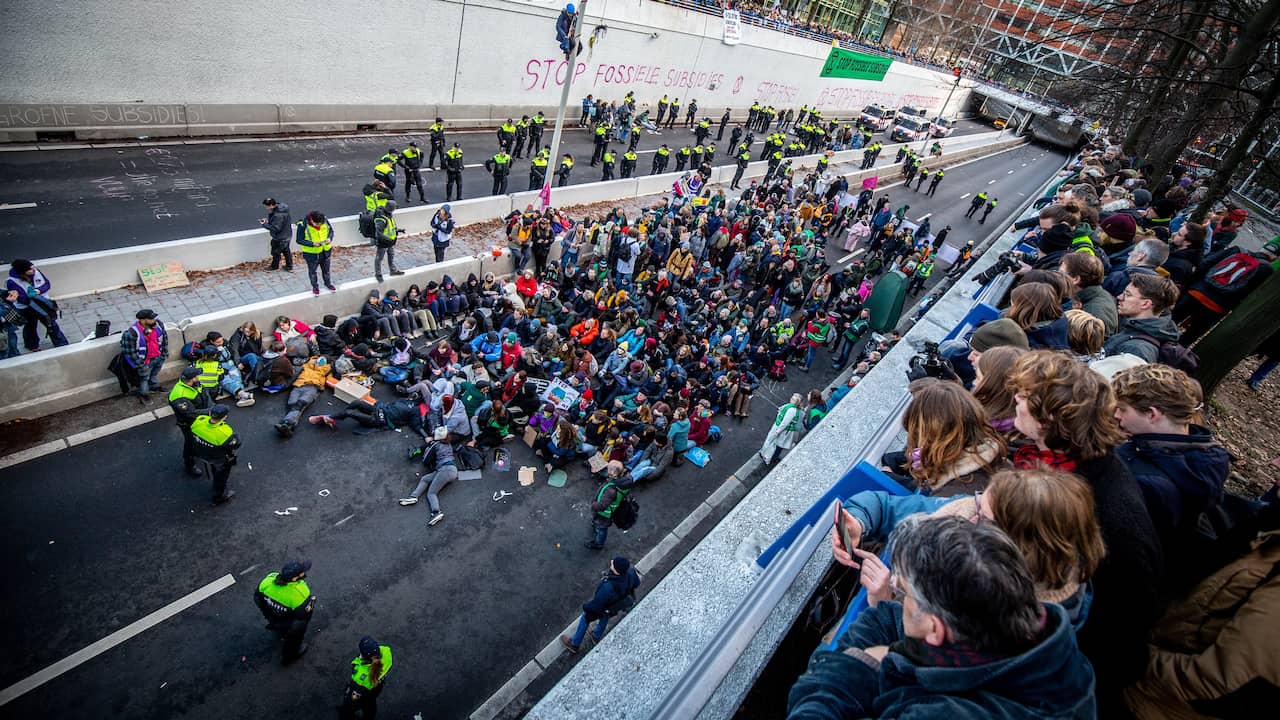The court in The Hague only partly agrees with the area ban imposed on eight climate activists. The activists of Extinction Rebellion (XR) were imposed this area ban because they had called for the Utrechtsebaan (A12) to be blocked on 28 January.
Three of the eight activists had never called for such a blockade before. “They had not (yet) disturbed public order at that time and the area ban can therefore not be maintained in their case,” the court said.
The five others did. Those blockades took place before the action on 28 January. The judge therefore agrees that these activists are not allowed on the A12 for a while. The right to demonstrate may be restricted in those cases, because otherwise road safety would be endangered.
But the judge does not think it is right that the activists have also been banned from the immediate vicinity of the Utrechtsebaan. A blockade could also cause nuisance there, but it would be “expected to be much less serious”. The judge says that a ban for that area is disproportionate to the nuisance that the action can cause.
The fact that the Public Prosecution Service (OM) imposed area bans a few days before the blockade led to a lot of criticism. Dozens of organizations said they support the climate activists. Finally, on January 28, almost eight hundred activists who had actually blocked the Utrechtsebaan were arrested.
XR has now blocked the Utrechtsebaan five times. The next demonstration by the climate action group on the stretch of highway between the Ministry of Economic Affairs and Climate and the temporary House of Representatives is scheduled for March 11.

